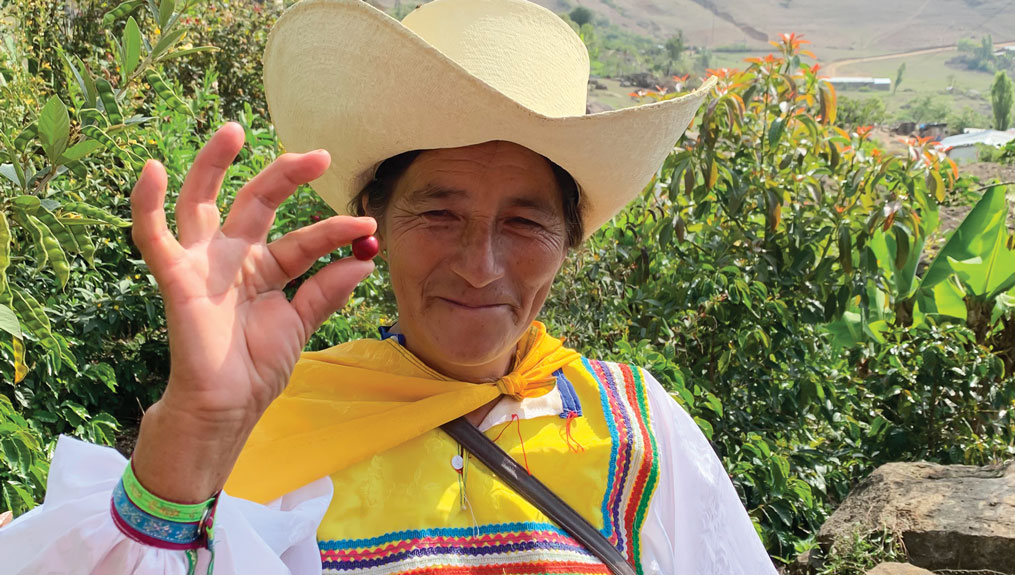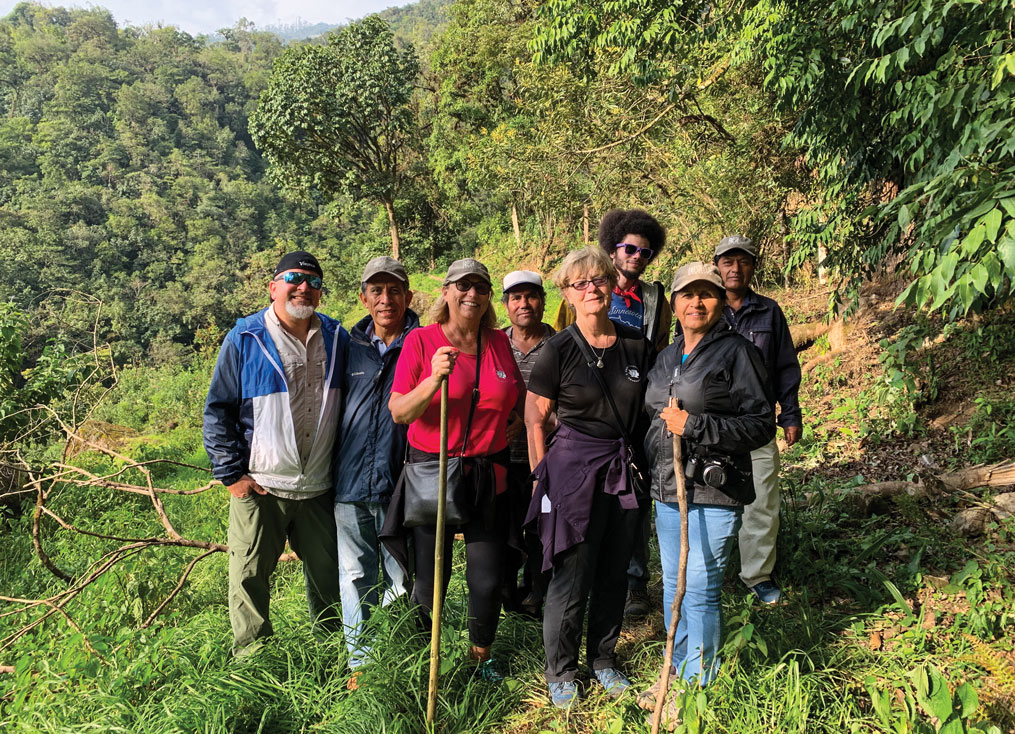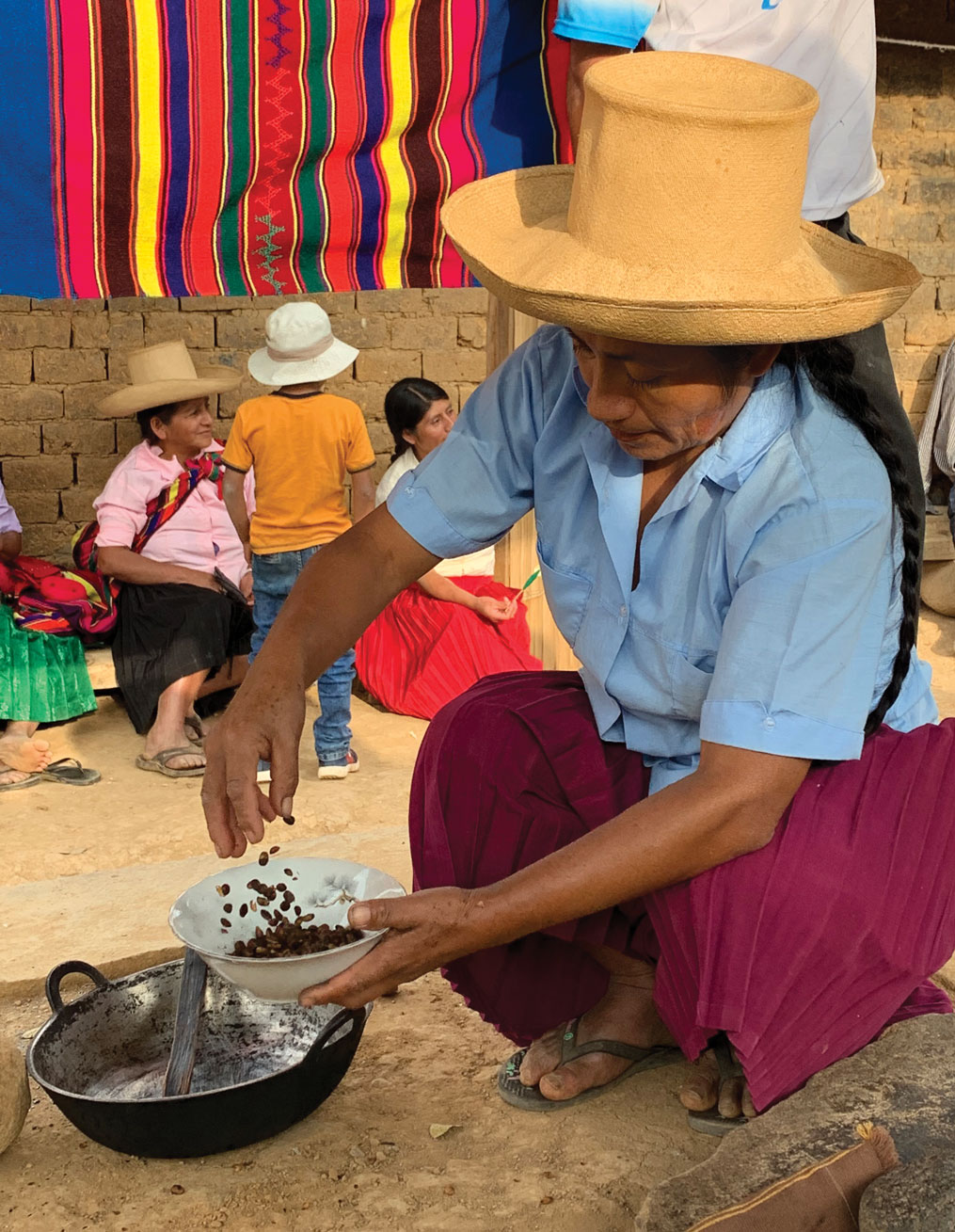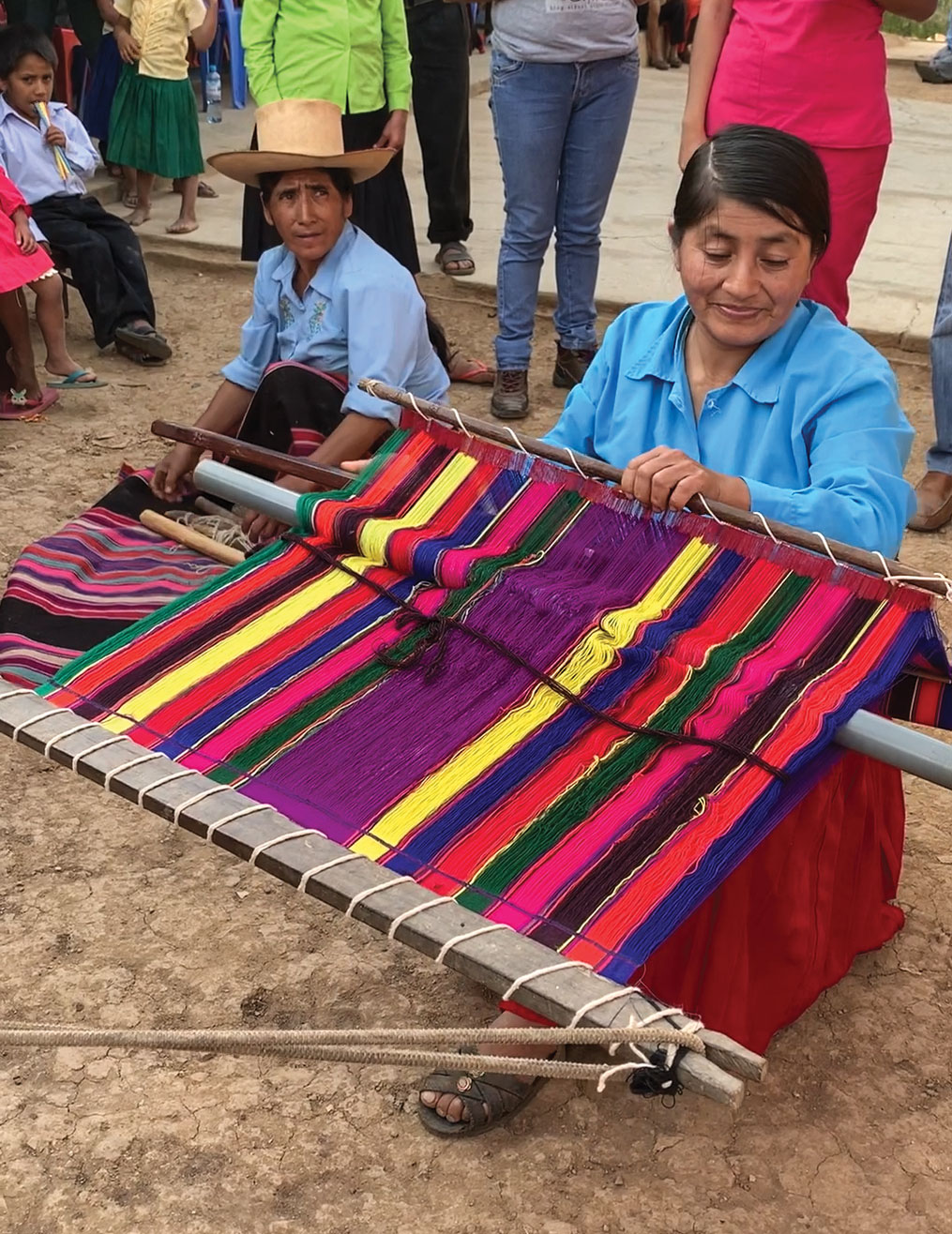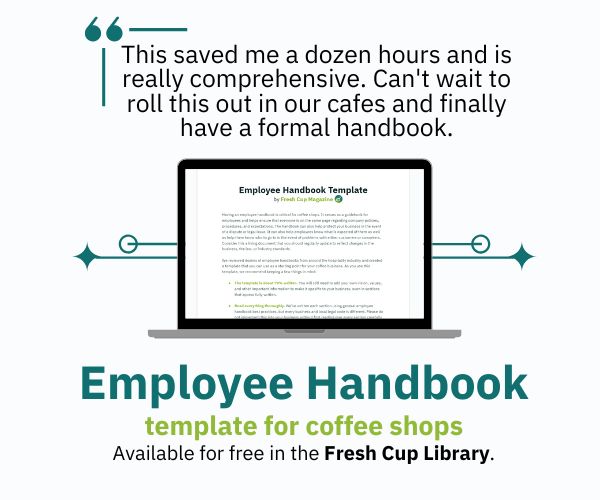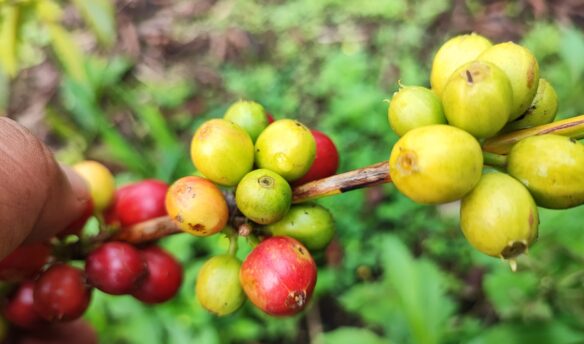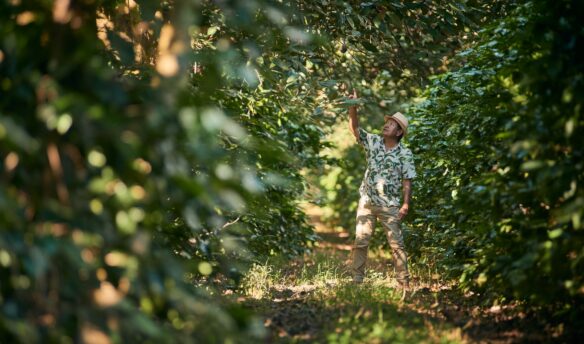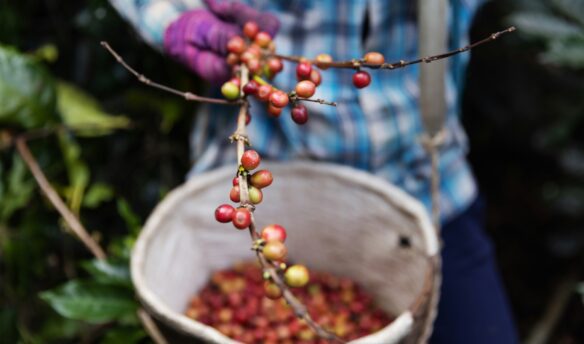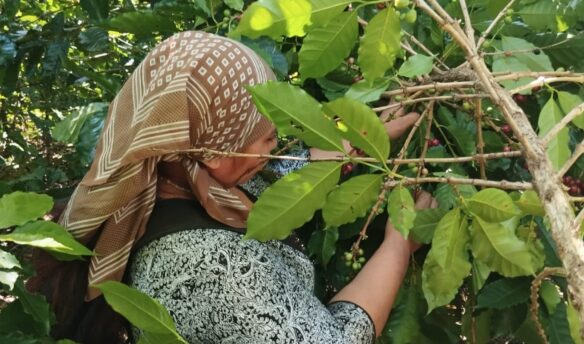Paula Chavez Gómez, president of the Women’s Association of Coffee and Quinoa, Naranjo, Peru. All photos by Jan Weigel
[I]n December, Fresh Cup’s publisher, Jan Weigel, traveled to Peru with the Café Femenino Foundation, a non-profit organization on which she has served as a board member for almost a decade. The foundation, whose mission is “granting hope worldwide,” is dedicated to enhancing the lives of women and their families in the coffee-producing communities throughout the world. By raising funds and approving grants for proposed projects and programs, the Café Femenino Foundation helps these communities face the issues of today, which include access to clean water, education, and healthcare.
Weigel joined Marilyn Dryke, president of the Café Femenino Foundation, on this trip to see firsthand some of the projects they’ve been funding throughout villages in Peru, including water reservoirs, wet mills and drying patios, vented stoves, and early education centers, as well as to meet with members of these communities to get a better understanding of what their needs are.
[clickandtweet handle=”” hashtag=”” related=”” layout=”” position=””]“It’s really important to visit [coffee-producing] countries and have a real feeling of what their challenges are, then come back and work at how we can help solve these challenges,” says Weigel.[/clickandtweet]
Hearing directly from the women in these communities and seeing how the funded projects come to life, Weigel says she is now more informed for when it comes time to vote for proposed grants. She also grew inspired by the “very strong women” she met, who have been empowered to use their voices, which in turn has led to safer spaces, less abuse, and more visibility as leaders of the community.
“Since the Café Femenino Foundation has been going down there and supporting these women, it’s empowering the women to help make decisions within the community,” says Weigel. “The communities are getting stronger.”
Upon arrival to Peru, Weigel and Dryke met with Peru’s Café Femenino Women’s Groups, in a day spent sharing information about new partnerships and activities during 2018, as well as grant project progress reports. Guest speakers also came in to give presentations on nutrition, healthy hygiene habits, and meal preparation. The next two weeks were spent rising well before dawn to travel across the Andes to meet with the communities where projects are being funded by the foundation. The trip also included a visit to the coffee processing plant PROASSA in Chiclayo for a cupping of Café Femenino coffees. From eating guinea pig for the first time to forming lifelong friendships, Weigel shares some of her highlights.
NARANJO
The drying patios built in Naranjo are funded by UP Coffee Roasters. (UP’s owner David Chall and roaster CJ Porter Born joined for part of the trip.)
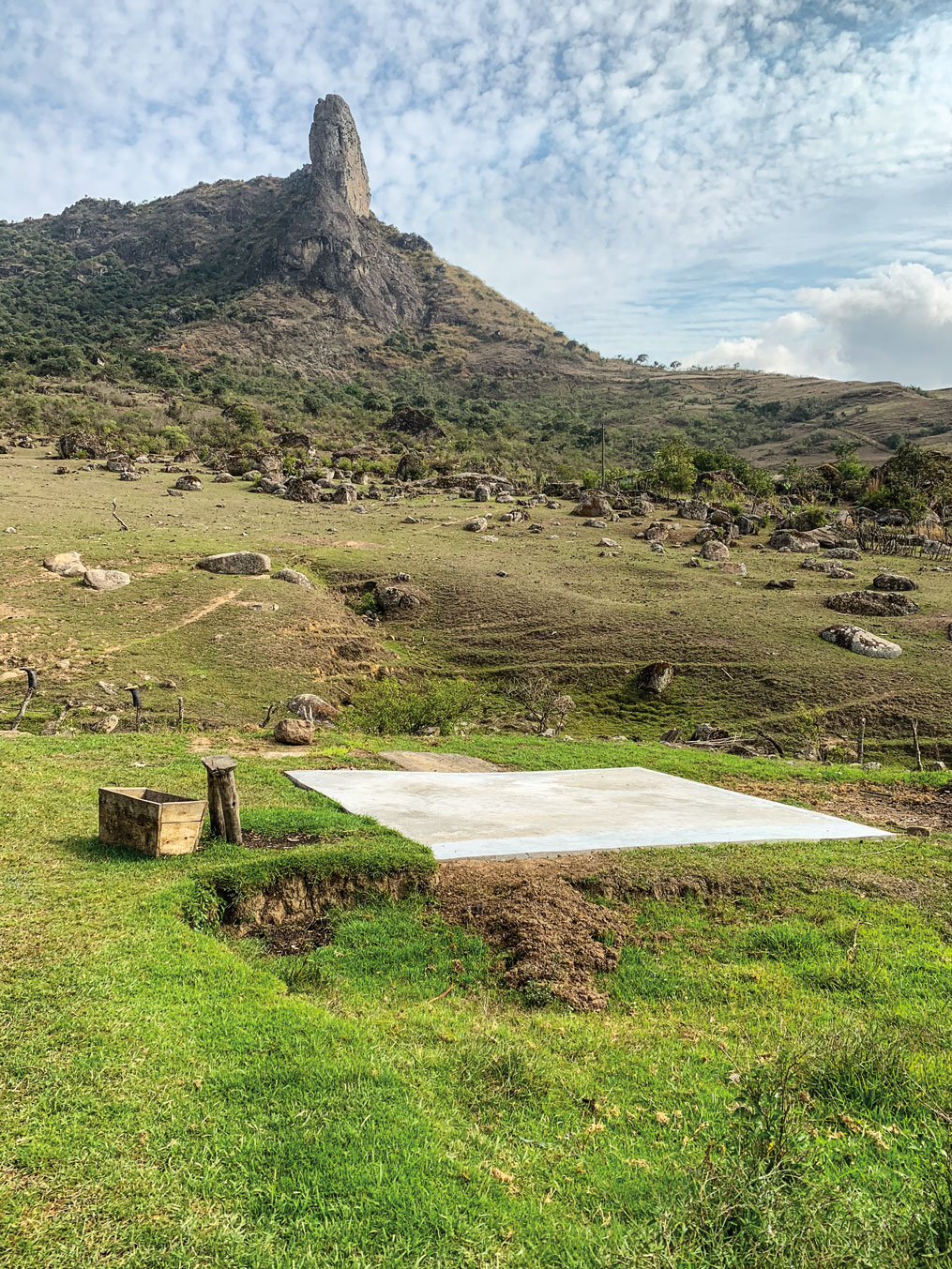
“[In this village] people are all still wearing the native Peruvian clothing. As the internet is infiltrating the communities, people are going away from them….We were up there, and it was 85 degrees and those clothes are heavy and big. With global warming, it’s becoming too hot, where before the climate was cooler….I felt like this is one of the last generations that’s going to be wearing that traditional clothing.”
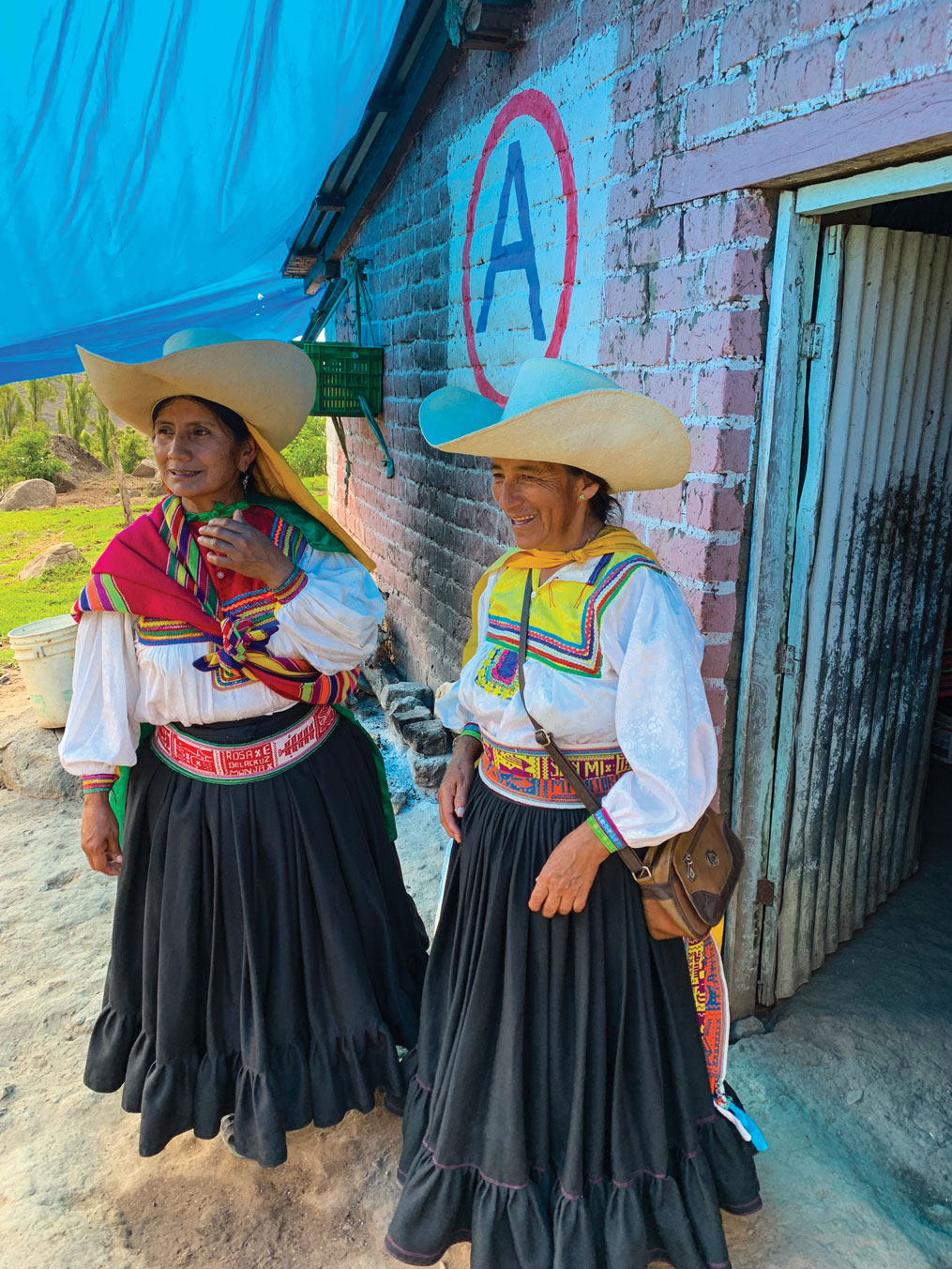
VILLA RUMI
Visiting the Water Reservoir and Irrigation System in Villa Rumi, which the Foundation funded in 2018.
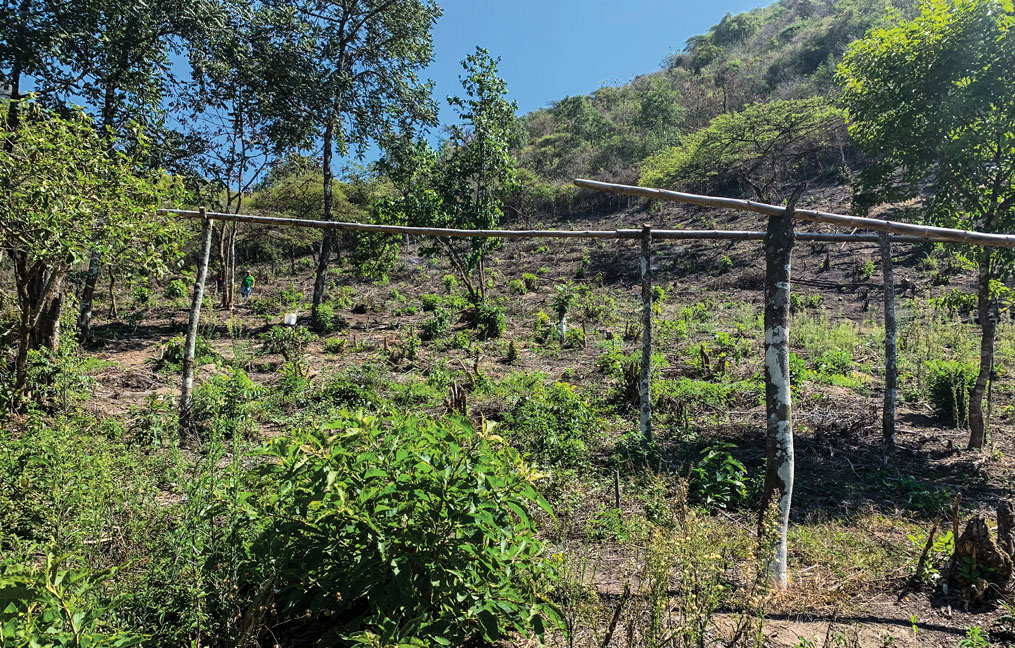
“This is a village that has very little water. They used to get six months of rain, six of sunshine. Now they’re getting three months of rain, nine months of sunshine. Through global warming, it’s become harder and harder, so they’re limited as to how much coffee and other crops they can grow, and that’s pretty sad. We’re trying to get water to them so they can improve their coffee and grow other crops that they can sell to other communities that need vegetables.”
TALLAPAMPA
In the coffee community of Tallapampa, the Foundation has funded wet mills and drying patios, as well as provided workshops for weaving and embroidery.
“I bought fifteen of these blankets! The minute I brought out the money, one of the men stood up and came over to get the money. But through a bit of sign language, I told him no—she wove the blanket, she receives my money….This is the cycle you want to break, that women get credit where credit is due.”
SAN JOSÉ HUANAMA
Children at an early education center participated in a graduation, where they were honored and served a special cake. The celebration is funded by the parents; each year, the ceremony is different, based on how much the parents can afford.
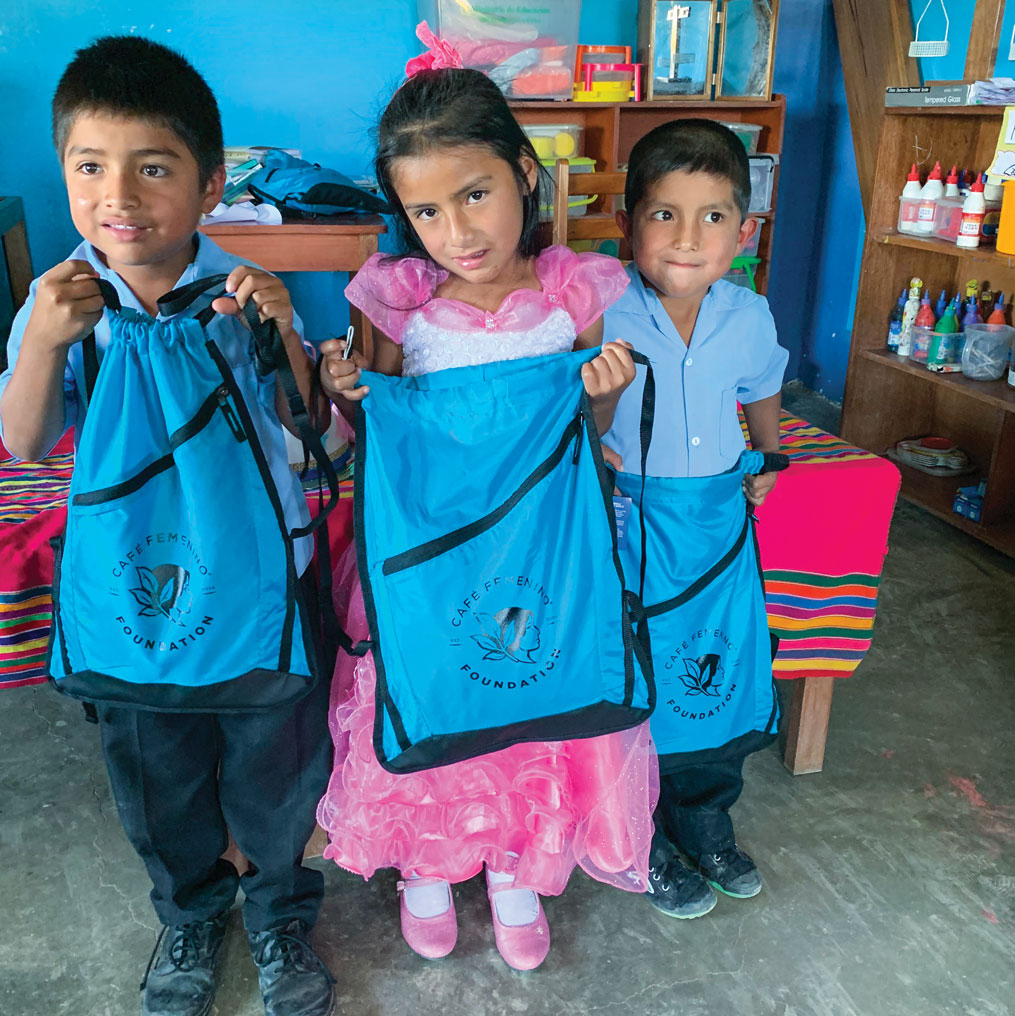
AGUA AZUL
In Agua Azul, Café Femenino coffee producer Sabina Hernandez provided a tour of her farm, and then the group was led on a waterfall hike. That evening, Hernandez made a full traditional meal, with the Peruvian delicacy cuy (guinea pig).
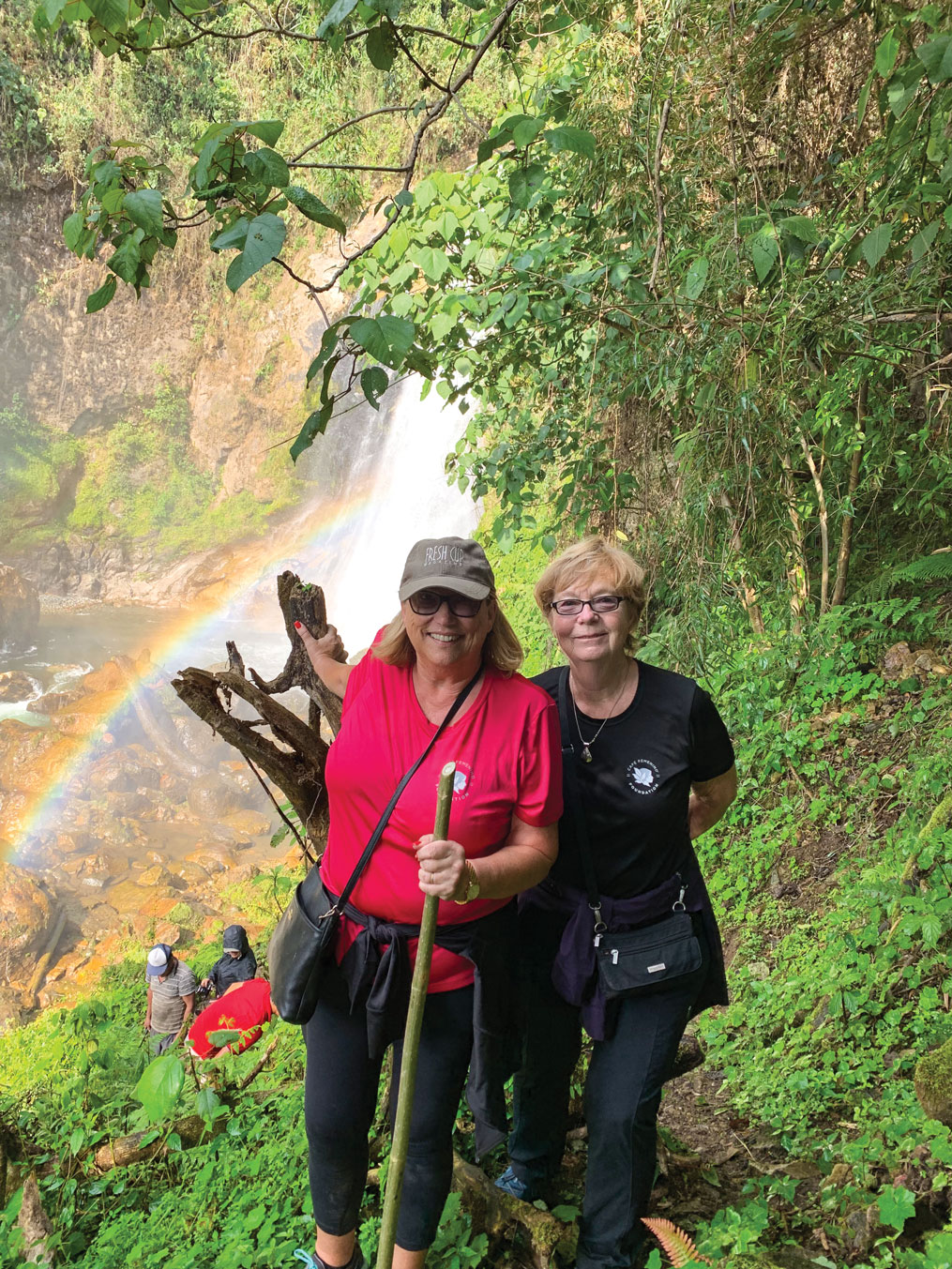
“I had cuy for the first time—very nutritional, very delicious, not pretty to look at!”
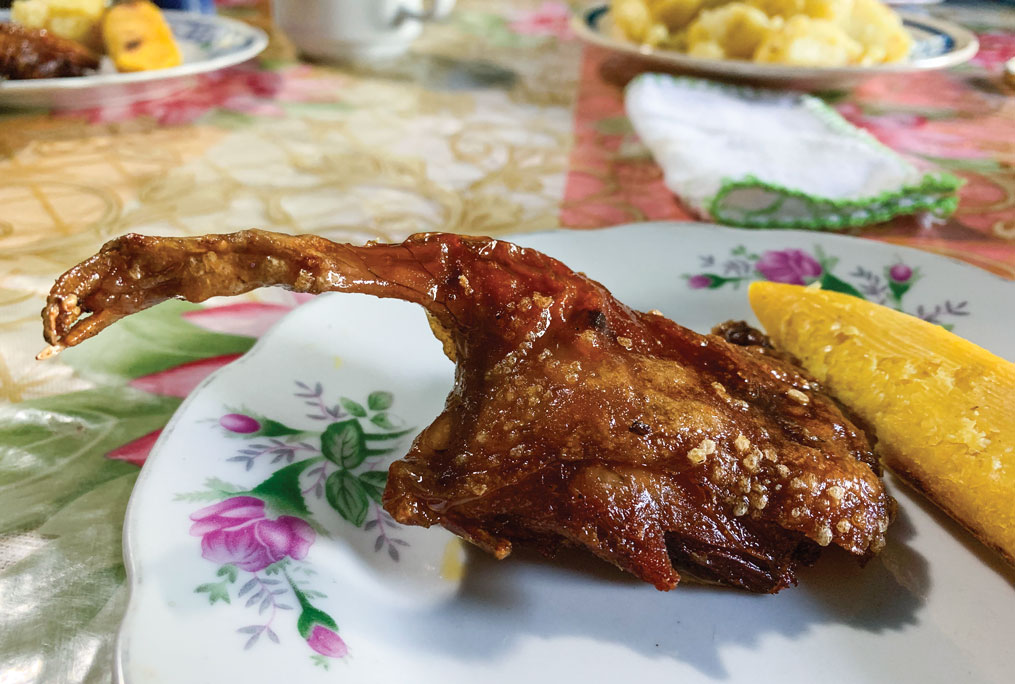
NUEVA YORK
One of the most beloved programs the Café Femenino Foundation funds for the communities is La Chocolatada, a traditional celebration throughout the month of December that involves handing out hot chocolate and panetón. At each of the village’s celebration, Weigel and Dryke helped prepare and serve the chocolate and sweet bread, and danced with the children.
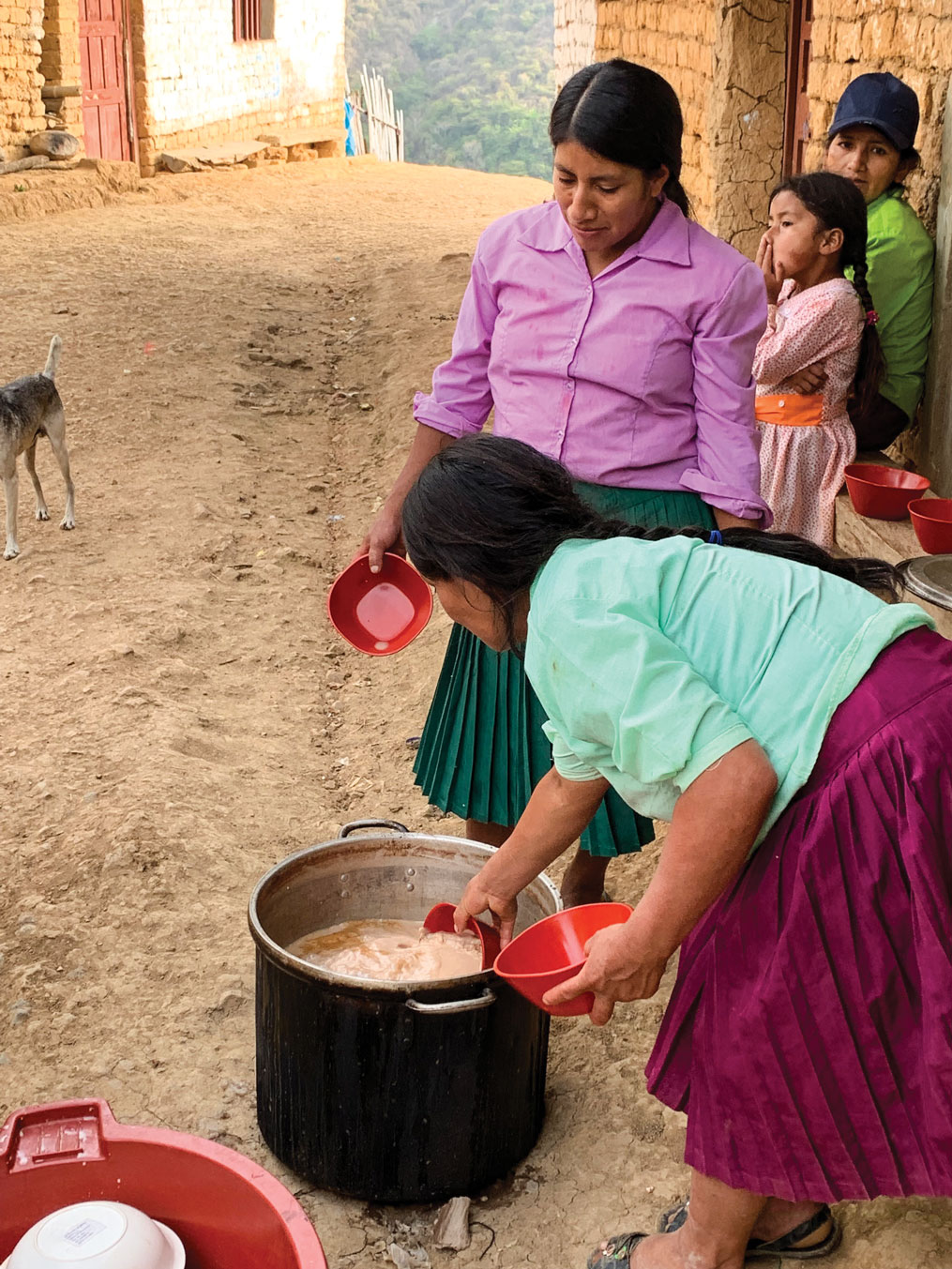
“These people only get hot chocolate and panetón once a year. It’s a special treat. We thought, maybe there’s other things we should be spending money on, but it’s so important to them. They love it so much, and it brings the community together. It’s really special.”
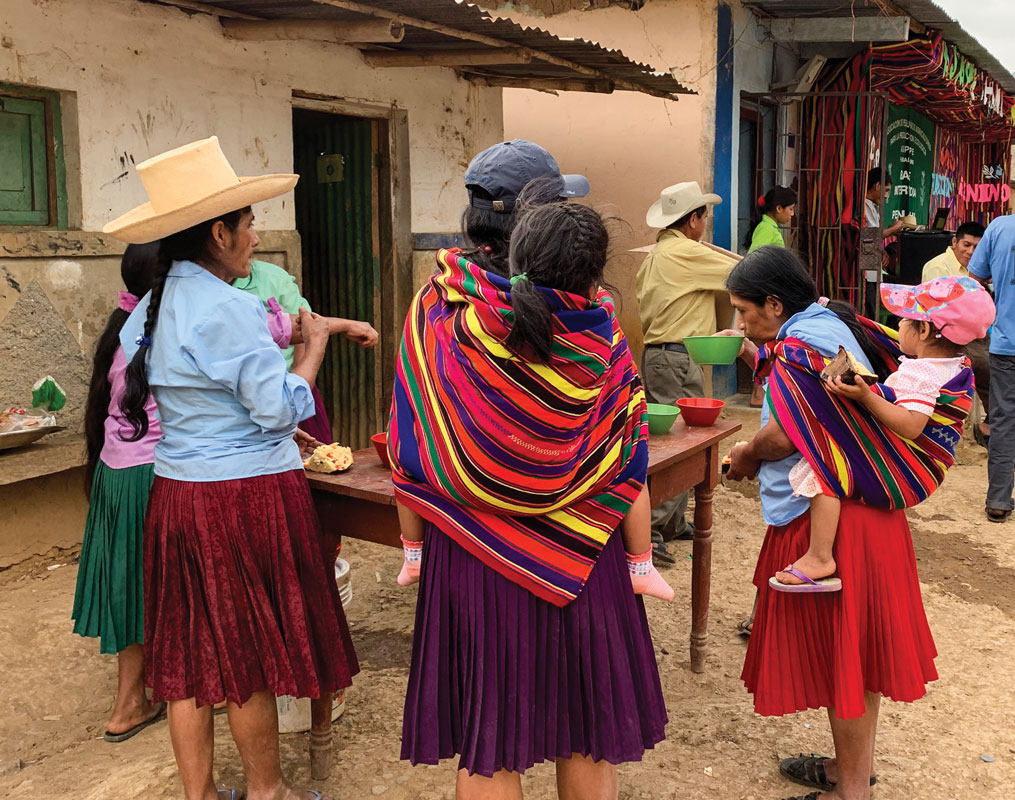
For more information on the Café Femenino Foundation, visit CFFoundation.org
PHOTO GALLERY:
[ngg src=”galleries” ids=”4″ display=”basic_slideshow” autoplay=”0″ arrows=”1″ show_thumbnail_link=”0″]

